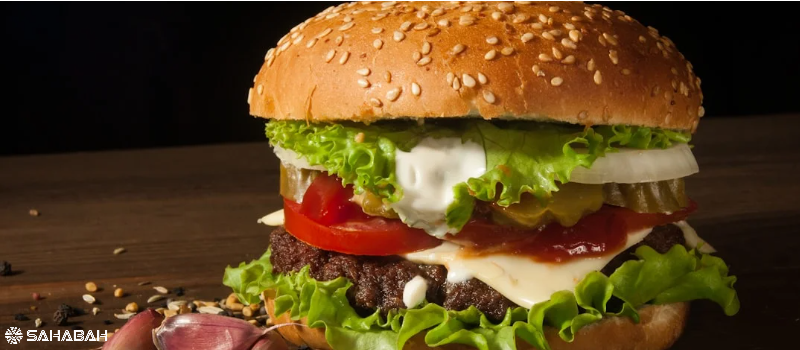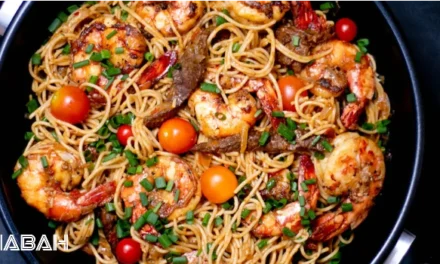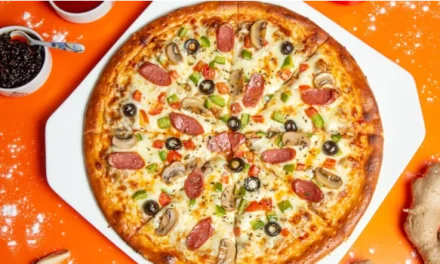When it comes to fast food, few names command as much recognition and loyalty as Fatburger. Since its inception in 1952, this iconic burger chain has captured the hearts and palates of millions with its signature burgers, fries, and milkshakes. However, as the demand for halal food options continues to rise, many Muslim consumers are left wondering: Is Fatburger halal?
In this comprehensive article, we’ll explore the halal status of Fatburger, delving into the chain’s policies, menu items, and certifications. Whether you’re a devout Muslim seeking halal dining options or simply curious about the halal scene, this guide will provide valuable insights into one of America’s most beloved burger establishments.
What is Halal Food?
Before we dive into Fatburger’s halal offerings, it’s essential to understand the concept of halal food. According to Islamic dietary laws, halal refers to what is permissible or lawful for Muslims to consume. For food to be considered halal, it must meet specific requirements:
- Allowed Ingredients: Halal food must be free from pork, pork-derived ingredients, and any products containing alcohol or non-halal animal fats.
- Slaughtering Methods: Animals must be slaughtered according to Islamic principles, which involve a swift, humane process and invoking the name of Allah.
- Preparation and Handling: Halal food must be prepared, cooked, and served using utensils and equipment that have not come into contact with non-halal substances.
Common examples of halal food include beef, chicken, lamb, fish, fruits, vegetables, and grains. Non-halal items include pork, alcohol, and any food containing non-permitted ingredients or additives.
Fatburger’s Halal Certification and Menu Options
When it comes to Fatburger’s halal status, the answer is not a simple yes or no. The chain’s approach to halal certification and menu offerings varies across locations and regions.
In certain countries and areas with significant Muslim populations, Fatburger has taken steps to obtain halal certification from reputable Islamic organizations. These certified locations offer a dedicated halal menu, featuring burgers, chicken sandwiches, and other items prepared using halal-compliant ingredients and methods.
For example, Fatburger outlets in Malaysia, Singapore, and parts of the Middle East proudly display their halal certifications and serve halal-certified beef patties, chicken, and fries. Some locations may also offer halal-friendly substitutes, such as beef bacon or plant-based alternatives.
However, it’s important to note that Fatburger’s halal policies and menu options can differ from one location to another, even within the same country or region. While some franchises may have obtained halal certification, others may not have taken this step, making it crucial for Muslim diners to inquire about the halal status before ordering.
Variations in Halal Policies Across Locations
Fatburger’s approach to halal certification and menu offerings can vary significantly across locations and regions. Here are a few examples:
-
Malaysia and Singapore: Many Fatburger outlets in these countries have obtained halal certification from recognized Islamic authorities, offering dedicated halal menus with certified beef patties, chicken, and fries.
-
Middle East: In certain countries like the United Arab Emirates and Saudi Arabia, Fatburger has partnered with local franchisees to provide halal-certified menu items catering to the Muslim population.
-
United States and Canada: While Fatburger does not have a comprehensive halal policy in these regions, some individual franchises may offer halal-certified menu items based on local demand and partnerships with halal suppliers.
It’s always recommended to check with your local Fatburger restaurant for the most up-to-date information on their halal offerings and certifications. Many locations display this information prominently or have dedicated halal menus available upon request.
Importance of Halal Certification for Muslims
For devout Muslims, adhering to halal dietary laws is a matter of religious obligation and personal conviction. Consuming non-halal food is considered haram (impermissible) and can have spiritual and ethical consequences.
Halal certification plays a crucial role in providing assurance and peace of mind to Muslim consumers. It signifies that a food product or establishment has undergone scrutiny and meets the stringent requirements outlined by Islamic dietary laws. This certification process involves inspections, audits, and the approval of recognized Islamic authorities or organizations.
Beyond religious significance, halal certification also addresses concerns related to food safety, hygiene, and ethical practices in the food industry. Many Muslims prefer halal-certified products because they perceive them as being prepared under more stringent guidelines and with greater transparency regarding ingredient sourcing and handling.
As the demand for halal food options continues to grow globally, major food chains like Fatburger are recognizing the importance of catering to this market segment. By offering halal-certified menu items, these establishments demonstrate respect for cultural and religious diversity while attracting a loyal customer base.
Alternatives for Halal Burger Lovers
If Fatburger does not offer halal-certified options in your area, fear not! There are plenty of alternatives to satisfy your cravings for a delicious and halal burger experience.
-
Halal Burger Chains: Many dedicated halal burger chains have emerged in recent years, offering a wide range of halal-certified burgers, fries, and other fast food favorites. Some popular examples include Shakies Galore, Burgrill, and Burgernator.
-
Halal Restaurants and Cafes: Local halal restaurants and cafes often serve delectable burgers made with halal-certified beef or chicken patties. These establishments may also offer unique and creative toppings or burger variations.
-
Make Your Own Halal Burgers: For those who prefer a DIY approach, preparing halal burgers at home is a fantastic option. By sourcing halal-certified ingredients and following authentic recipes, you can create customized burgers tailored to your taste preferences.
When dining out, it’s always advisable to inquire about the halal status of the ingredients and preparation methods used by the restaurant. Many establishments are happy to accommodate special dietary needs and provide clear information about their menu items.
Halal Burger Recipes and Cooking Tips
If you’re feeling inspired to try your hand at making halal burgers at home, we’ve got you covered with some delicious recipes and cooking tips:
Classic Halal Beef Burger
-
Ingredients:
- 1 lb halal-certified ground beef
- 1 egg
- 1/2 cup breadcrumbs
- 1 tsp salt
- 1/2 tsp black pepper
- 1/2 tsp garlic powder
- Halal burger buns
- Toppings of your choice (lettuce, tomato, onion, pickles, etc.)
-
Instructions:
- In a large bowl, mix together the ground beef, egg, breadcrumbs, salt, pepper, and garlic powder until well combined.
- Form the mixture into patties, about 1/2 inch thick and slightly wider than the buns.
- Grill or pan-fry the patties over medium-high heat until cooked through, about 4-5 minutes per side.
- Toast the halal burger buns and assemble the burgers with your desired toppings.
Juicy Halal Chicken Burger
-
Ingredients:
- 1 lb halal-certified ground chicken
- 1 egg
- 1/2 cup breadcrumbs
- 1/4 cup diced onion
- 1 tsp salt
- 1/2 tsp black pepper
- 1/2 tsp dried thyme
- Halal burger buns
- Toppings of your choice (lettuce, tomato, mayo, etc.)
-
Instructions:
- In a large bowl, mix together the ground chicken, egg, breadcrumbs, diced onion, salt, pepper, and dried thyme until well combined.
- Form the mixture into patties, about 1/2 inch thick and slightly wider than the buns.
- Grill or pan-fry the patties over medium-high heat until cooked through, about 5-7 minutes per side.
- Toast the halal burger buns and assemble the burgers with your desired toppings.
Cooking Tips:
- Use a meat thermometer to ensure burgers are cooked to a safe internal temperature (165°F for beef, 165°F for chicken).
- Avoid over-mixing the burger mixture, as this can lead to tough and dense patties.
- Consider adding herbs, spices, or sauces to the burger mixture for extra flavor.
- Toast the buns for added texture and flavor.
- Experiment with different toppings and condiments to create your perfect halal burger.
Don’t be afraid to get creative and share your halal burger creations with friends and family! Cooking at home not only allows you to tailor the ingredients to your preferences but also creates an enjoyable bonding experience.
Conclusion
Fatburger’s journey in accommodating halal diners is a complex one, with varying policies and menu offerings across different locations. While some franchises have obtained halal certification and provide dedicated halal menus, others may not cater to this dietary requirement.
For Muslim consumers seeking halal burger options, it’s essential to inquire about the halal status and certifications at your local Fatburger or explore alternatives like dedicated halal burger chains, restaurants, or homemade recipes.
Ultimately, the demand for halal food options continues to grow, and establishments like Fatburger are recognizing the importance of catering to this market segment. By understanding the significance of halal certification and adhering to Islamic dietary laws, food establishments can foster inclusivity, respect cultural diversity, and attract a loyal customer base.
Whether you choose to indulge in a halal-certified Fatburger or opt for alternative halal burger experiences, the key is to prioritize your dietary preferences and enjoy a delicious, guilt-free meal that aligns with your values and beliefs.
Frequently Asked Questions: Is Fatburger Halal
Fatburger does not have an official certification as a halal restaurant, but they do offer a range of menu items that are halal-friendly. It’s always best to check with your local Fatburger franchise to confirm their specific offerings.
When was Fatburger established?
Fatburger has been serving up delicious burgers since 1952.
What are some popular items on the Fatburger menu?
Some popular items on the Fatburger menu include their juicy burgers, boneless wings, onion rings, and skinny burgers.
Can I customize my order at Fatburger?
Yes, Fatburger allows you to customize your order with add-ons like relish, mustard, buffalo chicken, chili, and more to suit your preferences.
Are the wings at Fatburger boneless?
Yes, Fatburger offers boneless wings on their menu, perfect for those who prefer boneless chicken options.
Does Fatburger use fresh ingredients?
Yes, Fatburger prides itself on using fresh, never frozen, high-quality ingredients to create their delicious and gourmet burgers.
Where can I find a Fatburger restaurant?
Fatburger has locations in various places, including Kinex, Novena Square, and Beijing, offering great food and a selection of tasty burgers.





